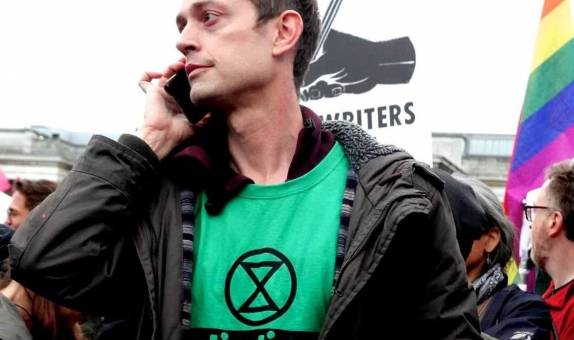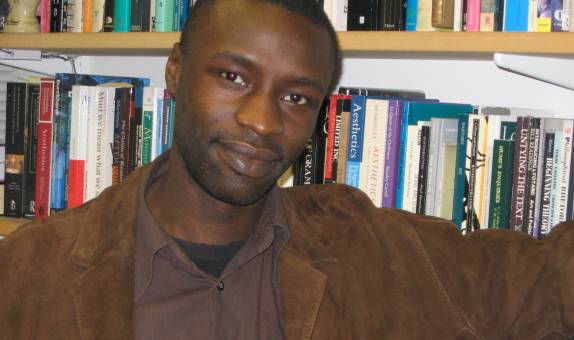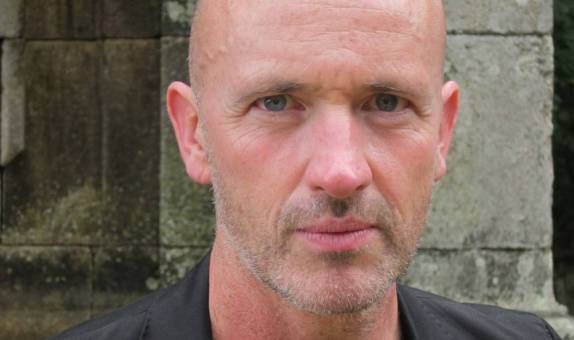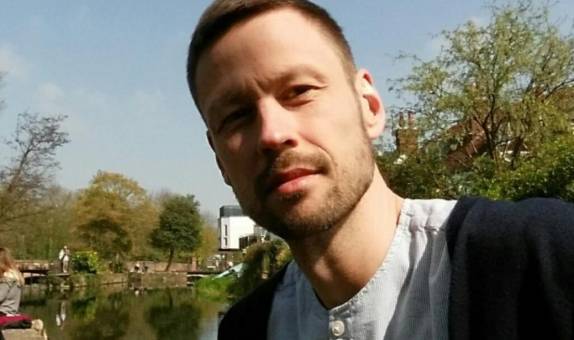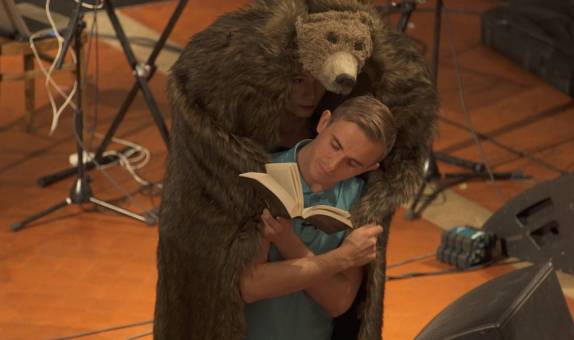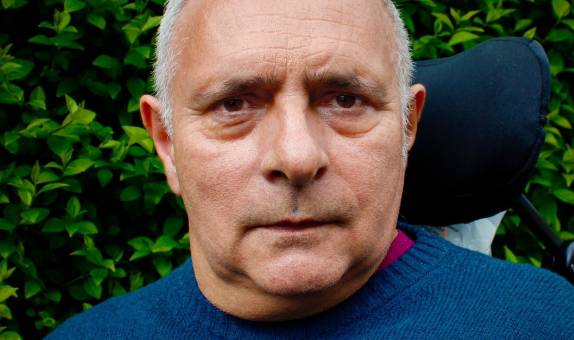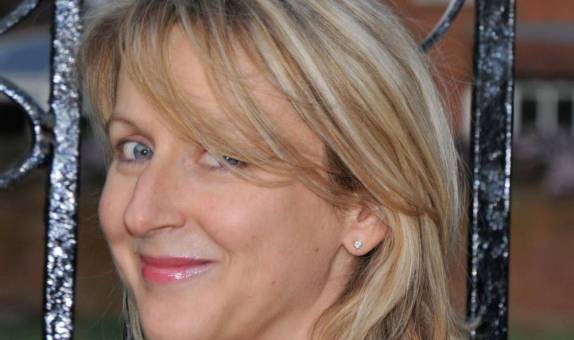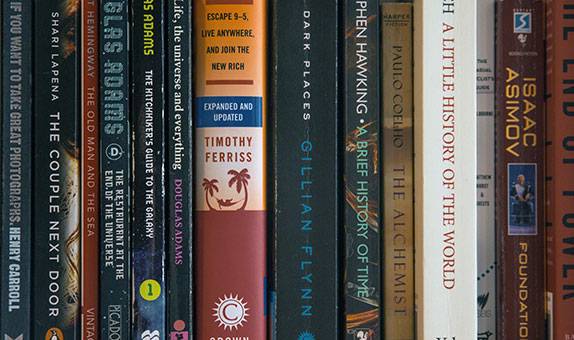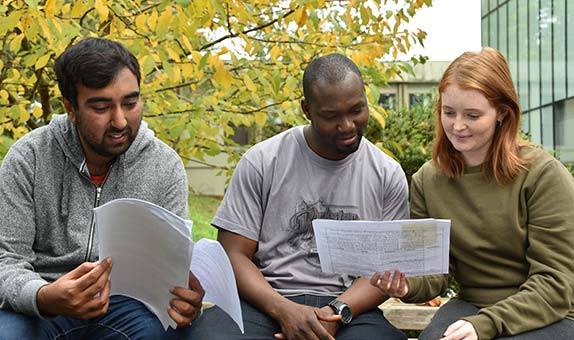Creative Writing MFA
Why choose this course?
The first Master of Fine Arts in Creative Writing in the UK, this course offers talented and aspiring writers the chance to refine their craft under the tutelage of acclaimed professionals and develop a unique combination of creative and practical skills on this course, in preparation for a career as a published writer.
You will learn in workshops, one-to-one or in small groups, with support from practising and published writers, and fellow students. Our award-winning former creative writing students include Booker-shortlisted Oyinkan Braithwaite, Joe Pierson, who won the Bridport Prize, Stefan Mohammed, awarded the Dylan Thomas Prize, Bafta-winner, Sarah Woolner, the acclaimed poet Dom Bury and celebrated novelist Faiqa Mansab.
Our external examiner has rated this course highly:
- 'This course has developed a strong identity in terms of encouraging students to fuse disparate, varied influences in their work.'
- 'I'm a fan of this course - well done!'
| Mode | Duration | Start date |
|---|---|---|
| Full time | 2 years |
September 2024 September 2025 |
| Part time | 4 years |
September 2024 September 2025 |
| Main Location | Penrhyn Road |
Curtis Brown Agent's Choice competition
All successful applicants who take up their place with us in September will be entered into our competition to have a consultation with Annabel White, an agent at top London literary agency Curtis Brown.
So make sure the creative work you submit with your application is your very best - it might win you a meeting with a literary agent.
Reasons to choose Kingston
- The Creative Writing MFA (Master of Fine Arts) is designed for serious writers who would like to build upon their publishing record or become a published writer.
- You will become part of Kingston's thriving community, with events such as readings, lectures from published authors, editors and agents, masterclasses and enriching discussions.
- You will have the opportunity to contribute to Kingston University's publication, Ripple, which includes fiction, poetry, reviews and creative non-fiction and is edited by students on the course.
- It uses a practical approach to develop your writing skills and is ideal if your writing is already of a good standard but you want to progress towards producing potentially publishable material.
- You also have the chance to learn more about professional elements of writing, such as working with agents/publishers and presenting proposals.
- You can enrol on the MFA at the beginning of your postgraduate degree at Kingston or after completing an MA in Creative Writing (or related subject).
The Art School Experience
As part of Kingston School of Art, students on this course benefit from joining a creative community where collaborative working and critical practice are encouraged.
Our workshops and studios are open to all disciplines, enabling students and staff to work together, share ideas and explore multi-disciplinary making.

What our students say
In this video, one of our creative writing alumna and a current student discuss why they chose the course, what they enjoyed about it and why they'd recommend it to future applicants.
What you will study
You'll attend writing workshops; examine literary genre and texts; take a module designed to prepare you for the world of publishing; and write a 15,000-word dissertation on a topic of your choice in the first year of the course. In the second year you progress to smaller group writing workshops. The extensive one-to-one supervision for the dissertation leading to the MFA (no less than 40,000 words) will be provided by one of the course's permanent staff, one of our distinguished professors.
Modules
MFA students need to complete all four MA modules (120 credits) before they can progress to the MFA (second) year. The MFA dissertation has 120 credits. The option modules and dissertation give you the chance to further specialise and pursue an area of interest in depth.
Core modules
MFA Dissertation
120 credits
This module provides students with one-to-one supervision over an extended period of time (approximately one year for full time students and two years for part time students). The module is assessed in two ways: firstly, by a creative dissertation of 40,000 words that may take the form of a single sustained piece of writing or a collection of pieces from a suitable range of genres; and secondly, by a critical reading log of approximately 4,500 words.
Special Study: Workshop in Popular Genre Writing
30 credits
This module offers a regular and intensive review of your writing in one of the following genres: poetry, crime writing, prose fiction, biography, drama, scriptwriting or writing for children. You will be advised on how to strengthen your knowledge of the codes and conventions of your chosen genre to produce a substantial piece or collection of work that will reflect your knowledge of and engagement with your chosen genre. You will apply detailed feedback on your work to your writing as well as using your increased knowledge of your chosen genre to make your writing more effective. These elements will help you improve the key transferable skills of analysis and implementation that will feed forward into your dissertation module and into all analytical/practical tasks you subsequently undertake.
Writing the Contemporary
30 credits
This module provides the opportunity to examine ways in which reading is essential to writing practice and teaches you to apply literary techniques and strategies from contemporary fiction, life writing and poetry texts to your own work. You will develop the concept of 'reading as a writer' in order to explore how contemporary concerns are brought to the fore by artistic strategies, and examine how an understanding of these can provide models for your own creative practice. You will submit work including a reflective reading journal as well as a creative piece in a genre of your choice.
Ten Critical Challenges for Creative Writers
30 credits
The module is designed to introduce students to some issues of critical and literary theory. The module is also designed to make students more aware of how their work impacts upon wider literary, cultural, political and philosophical issues. Awareness of these theories and of some of the issues surrounding the production and reception of literary texts will stimulate them, encouraging creative and conceptual thinking. The module will explore debates about literature and the practice of creative writing through readings of essays and texts that are relevant to criticism and theory. The academic component of the assessment will support the creative work with the objective that students will also have to demonstrate critical, academic, analytical skills.
Writers' Workshop
30 credits
In this module you will present and discuss your own and each other's work in a weekly workshop. The draft work presented may include several genres and forms, such as crime writing, fantasy fiction, children's literature, historical fiction, science fiction, romance and autobiography. Practical criticism of student writing will be accompanied by discussion of the scope or constraints of the various genres, as well as the implications of particular forms. Attention will be paid to the transferable components of good writing: appropriate use of language, narrative pace, dialogue, expression, characterisation and mood.
Entry requirements
Teaching and assessment
Book-length creative dissertation; critical reading log of approximately 4,500 words.
Who teaches this course?
As a student on this course, you will benefit from a lively study environment, thanks to the wide range of postgraduate courses on offer. The combination of academics and practitioners makes it a unique environment in which to further your studies and your career.
The University provides a vibrant and forward-thinking environment for study with:
- committed and enthusiastic staff – many of whom are published authors and expert practitioners as well as leading academics and researchers;
- courses designed in collaboration with industry professionals – keeping you up to date with the latest developments;
- established connections with the London arts and media scene – with a range of guest speakers, professors and lecturers visiting the University; and
- a range of opportunities to take part and attend author events, including readings, poetry festivals, industry masterclasses.
Postgraduate students may also contribute to the teaching of seminars under the supervision of the module leader.
Fees for this course
Additional costs
Depending on the programme of study, there may be extra costs that are not covered by tuition fees which students will need to consider when planning their studies. Tuition fees cover the cost of your teaching, assessment and operating University facilities such as the library, access to shared IT equipment and other support services. Accommodation and living costs are not included in our fees.
Where a course has additional expenses, we make every effort to highlight them. These may include optional field trips, materials (e.g. art, design, engineering), security checks such as DBS, uniforms, specialist clothing or professional memberships.
Facilities
There is a wide range of facilities at our Penrhyn Road campus, where this course is based. You will have access to a modern environment with the latest equipment, including the Learning Resources Centre. This offers:
- subject libraries, plus a free inter-library loan scheme to other libraries in the Greater London area
- online database subscriptions
- a growing selection of resource materials.
After you graduate
Former graduates have achieved multi-book publishing deals or gone on to work in the publishing industry; others have progressed in careers in translating, writing, journalism, advertising and film.
Research areas
Research in English literature and creative writing at Kingston University covers the following areas:
- 19th and 20th century British and American fiction;
- fictions of globalisation;
- modernism;
- gothic writing;
- travel writing;
- narratives of slavery;
- women's writing from the 18th century to the present;
- New Woman and fin de siècle fictions;
- Shakespeare;
- literature of the English Reformation period;
- English women's religious poetry during the seventeenth century; and
- postcolonial studies.
It focuses around the following research initiatives:
- Centre for Iris Murdoch Studies – established in 2004 to oversee research on the Iris Murdoch archives acquired by Kingston University in 2003/04).
- Centre for Life Narratives – bringing together best practice from all genres of life narrative work.
- Cultural Histories at Kingston – centred around the concept of the 'cultural text', the group includes scholars from the fields of literature, film, media, history, music, dance, performance, and journalism.
- Writers' Centre Kingston – a literary cultural centre dedicated to creative writing in all its forms, with an annual programme of events, talks, workshops and festivals.
- Race/Gender Matters – captures and concentrates research on theoretical, critical and creative engagements with the materiality of race, gender and language.
We also hold regular seminars and host presentations by visiting speakers.
Course changes and regulations
The information on this page reflects the currently intended course structure and module details. To improve your student experience and the quality of your degree, we may review and change the material information of this course. Course changes explained.
Programme Specifications for the course are published ahead of each academic year.
Regulations governing this course can be found on our website.



